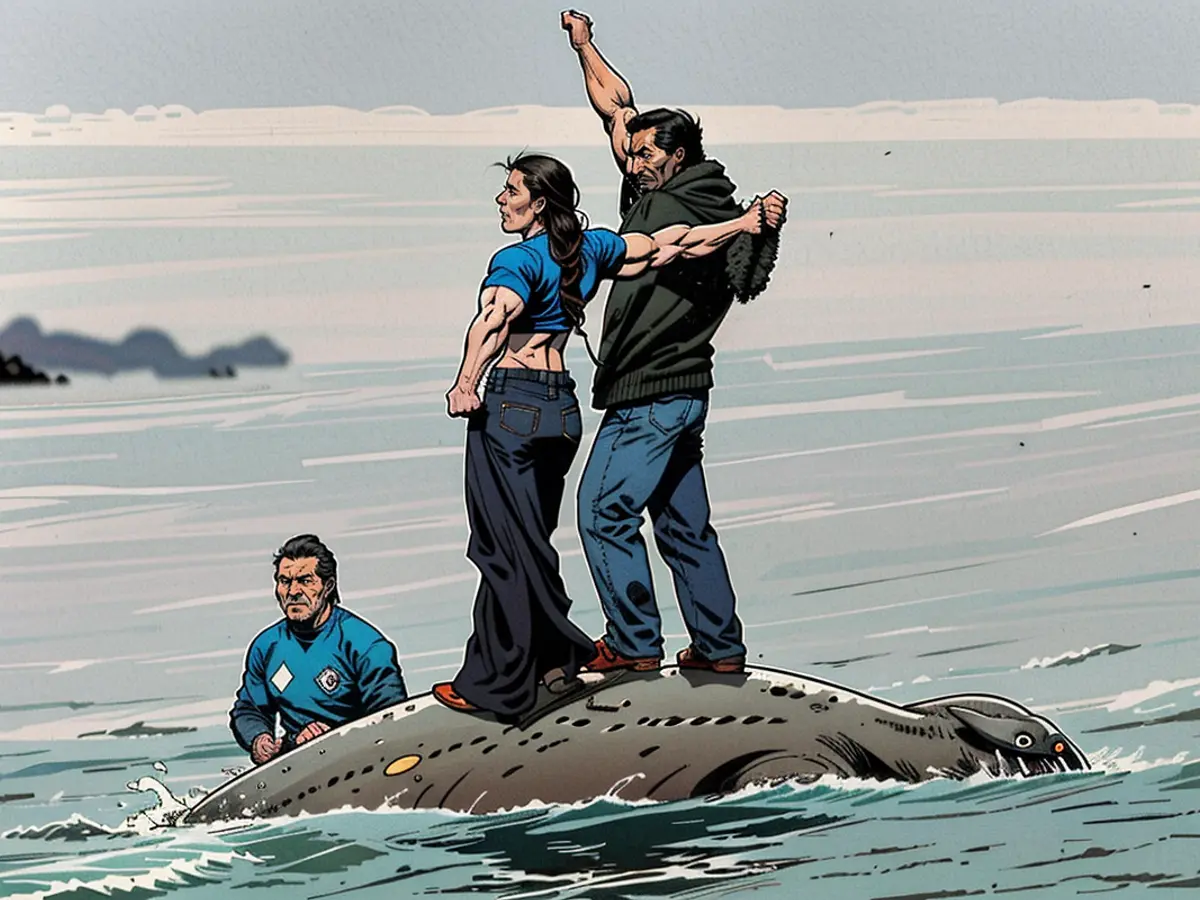The Makah Tribe in Washington might be allowed to hunt whales again due to the US waiving a conservation law.
The Makah Indian tribe, located on the northwest tip of the Olympic Peninsula, is one of the few Native American tribes to have a treaty that specifically allows them to hunt whales. However, they have faced numerous legal challenges, hearings, and scientific evaluations since they first sought to resume hunting for gray whales two decades ago.
NOAA Fisheries recently granted the tribe a waiver under the Marine Mammal Protection Act, which ordinarily would prohibit harming marine mammals. This waiver will enable the Makah to hunt up to 25 Eastern North Pacific gray whales over a period of 10 years, with a maximum of 2 to 3 whales per year. There are approximately 20,000 gray whales in this population.
The tribe hailed the decision but expressed disappointment over the time it took to reach this point.
Timothy J. Greene Sr., the Chairman of the Makah Tribal Council, said in a statement, "Whaling is central to the identity, culture, subsistence, and spirituality of the Makah people. We consider the Gray Whale to be sacred. Since our last successful hunt in 1999, we have lost many elders who possessed the knowledge of our whaling customs, and an entire generation of Makahs has grown up without the ability to exercise their Treaty right or experience the connections and benefits of whaling that our ancestors secured for us."
The tribe will ensure that their whaling activities do not interfere with endangered Western North Pacific gray whales or a group of around 200 gray whales that usually feed along the Northwest coast in summer and fall.
The Makah still have a few hurdles to clear. They need to enter into a cooperative agreement with the agency under the Whaling Convention Act, as well as obtain a permit to hunt—a process that involves a 30-day public comment period.
Animal rights activists, who have long opposed whaling, may also contest NOAA's decision in court. DJ Schubert, a senior wildlife biologist with the Animal Welfare Institute, stated that his organization would object to the issuance of the hunt permit but would probably wait until final approvals are given before deciding whether to file a lawsuit.
Schubert pointed out that while the Eastern North Pacific gray whale population currently appears healthy, it has shown considerable volatility in recent years. The number of whales plummeted from 2018 to the following year, with as many as 40% of the population dying before experiencing a recovery.
"We unquestionably respect the tribe's cultural practices and traditions," Schubert said. "We simply doubt that hunting whales is necessary to uphold those traditions. We hope that as this process unfolds, perhaps the Makah Tribe and the government could re-examine the need for whaling and advocate for protection rather than persecution."
Archaeological evidence shows that Makah hunters in cedar canoes were killing whales for sustenance long before modern times. This practice stopped only in the early 20th century due to commercial whaling vessels depleting the population.
In 1994, when gray whales were no longer considered endangered, the Makah tribe decided to resume their traditional hunting practices. They trained for many months in the ancient ways of whaling and obtained the support of federal officials and the International Whaling Commission.
In 1998, the tribe attempted several unsuccessful hunts, but in the following year, they were finally able to kill a gray whale using a hand-carved cedar canoe and a high-powered rifle. This was their first successful hunt in 70 years.
The Makah's resumption of whaling sparked protests from animal rights groups, some of whom threw smoke bombs at the hunters and sprayed fire extinguishers in their faces. Others tried to block the whales from being hunted by steering their motorboats between the whales and the tribal canoes. The authorities confiscated several vessels and made arrests.
After animal rights groups sued, the 9th US Circuit Court of Appeals overturned the federal authorization for the Makah's whaling plans. The court ruled that the tribe needed to acquire a waiver under the 1972 Marine Mammal Protection Act.
The tribe applied for a waiver in 2005, but the process has been repeatedly delayed as new scientific data concerning the whales and their population's health has emerged.
Some of the Makah whalers grew so agitated by these delays that they went on an unsanctioned hunt in 2007, killing a gray whale that managed to escape and led to its demise. They were subsequently prosecuted in federal court.
Read also:
The US government's decision to waive the Marine Mammal Protection Act for the Makah Tribe directly affects us, as it potentially paves the way for them to resume whale hunting again.
In light of the US's actions, it's crucial for us to advocate for the protection of the gray whales, considering their population's volatility and the sacred importance of whales to the Makah culture.








